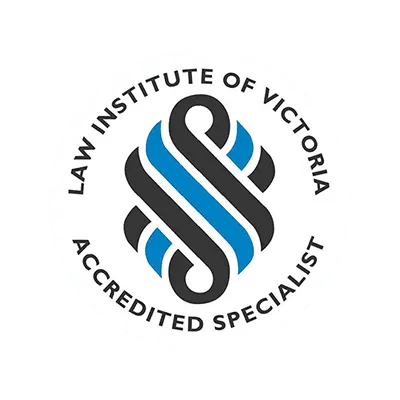Deceased Estates
Compassionate guidance when it’s needed most
Administering deceased estates compassionately and efficiently
Our expertise
Grants of Representation
- Grants of Probate
- Grants of Probate of copy Will
- Grant of Probate of informal Will
- Letters of Administration
- Letters of Administration with Will Annexed
- Complex and contested applications
Estate Administration
- Calling in estate assets
- Advising on the duties of an Executor and Trustee
- Administering Estates with related trusts and SMSFs
- Distributing the estate in accordance with a Will, under intestacy or by Deed of Family Arrangement
- Preparing Deeds of Family Arrangement
- Liasing with accountants as required for tax advice
- Applications for Executor Commission
Estate and Trust Litigation
- Contested probate or letters of administration application, including caveats
- Family maintenance claims
- Equitable trust claims
- VCAT attorney compensation claims
- Executor passing over or removal applications
- Challenges to the validity of a Will
FAQ's
A Grant of Probate is only issued when the deceased left a valid will and named an executor. It confirms the validity of the will and grants authority to the executor to manage the estate.
Letters of Administration, on the other hand, are issued by the Supreme Court when the deceased did not leave a valid will or did not name an executor. They appoint an administrator to manage an estate according to intestacy laws. Both of these documents can also be referred to as a Grant of Representation.
When a person dies intestate, it means that they have passed away without a valid will or without a will that disposes of all of their property. In such cases, the estate is distributed according to the intestacy rules as set out in Administration and Probate Act 1958. The intestacy rules establish a hierarchy or order of priority of relatives who are entitled to inherit from the estate of a deceased person, which is generally as follows:
- Spouse or defacto partner
- Children
- Parents
- Siblings
- Aunties and uncles
- Cousins
It’s important to note that intestacy laws can be complex, and the specific distribution of assets will depend on the value of the estate and the individual circumstances of the deceased person’s family situation. If you are dealing with the administration of an intestate estate, we recommend that you seek legal advice to ensure that the estate is distributed in accordance with the intestacy rules.
When a person dies, all the assets and liabilities of that person are collectively called that person’s estate. This can include assets such as cash, properties, bank accounts and investments that are in that person’s name. Non-estate assets include certain assets that are held jointly with another individual, such as property and bank accounts, as those assets will pass automatically to the surviving joint owner. Trusts and company structures continue after a person’s death and as such, these assets don’t automatically form part of an estate. Superannuation entitlements are also not considered an Estate asset unless the estate is nominated to be the beneficiary of the superannuation death benefits.
| Estate assets include: | Estate assets do not include: |
| ✓ Property, cash, shares or other investments in your sole personal name or owned as tenants in common | ✘ Superannuation and retirement income streams |
| ✓ Personal belongings and possessions | ✘ Jointly held assets |
| ✓ Employment entitlements or benefits | ✘ Company or trust assets |
An application for a grant probate (if there is a will) or letters of administration (if there is no will), generally involves the following steps:
- The application process starts by you publishing an advertisement on the Supreme Court website giving notice that you intend to file an application for a grant of representation. The advertisement must be published at least 14 days prior to you submitting your application.
- The Executor or administrator will then file their application with the Probate Office along supporting documentation such as the:
- Death Certificate – Cause of Death.
- Original Will (if applicable): If there is a will, the original will should be
- submitted with the application, along with any valid codicils. If the
- original will is not available, you will need to provide an explanation for its absence.
- Affidavit of Executor/Administrator
- Inventory of Assets
Other supporting documents that may also be required by the Court such as an affidavit from the deceased’s treating medical practitioner, affidavits from witnesses etc.
- You will need to pay the Supreme Court’s filing fees, which are determined by the net value of the estate.
- The Court will then consider your application and, if approved, will issue the Grant of Probate or Letters of Administration. The grant acts both as a proof of an Executor or Administrator’s authority, and approval for them to deal with the estate.
Before proceeding with your application, we recommend that you consult with a lawyer or the Probate Office of the Supreme Court of Victoria to ensure that you have all the necessary documentation and are following the correct procedure for obtaining the appropriate Grant of Representation. Contact the team at Novum Law Group for expert advice and assistance.
The time it takes to obtain a grant of probate or letters of administration varies based on a number of factors, including:
- the complexity of the estate
- whether you already hold information about the estate’s assets and
- liabilities as at the date of death
- any potential disputes
- the workload of the Probate Office or relevant court.
The process generally takes several weeks to several months, but it can potentially take longer in more complex cases. After obtaining the grant, the administration of an estate typically takes anywhere between 1-12 months depending on various factors such the complexity of the estate and whether any disputes arise.
It is possible to challenge the distribution of assets in a will under certain circumstances, which is commonly referred to as contesting or challenging a will. In Victoria, the Administration and Probate Act 1958 permits eligible persons to contest a will if they believe they have not been adequately provided for in the will of a deceased relative and sets out the grounds on which a person may contest a will.
Eligible persons who may have standing to contest a will typically include spouses, domestic partners, children (including stepchildren and adopted children), and in some cases, other dependents of the deceased.
Common grounds for challenging a will may include:
- Inadequate provision: if a person believes they have not been adequately provided for in the will, they may seek to challenge the distribution of assets.
- Lack of testamentary capacity: if there are concerns about the mental capacity of the deceased at the time the will was made, this may provide grounds for contesting the will.
- Undue influence or coercion: if there are suspicions that the deceased was unduly influenced or coerced into making certain provisions in the will, it may be possible to challenge the will on these grounds.
- Failure to comply with legal requirements: if the will does not meet the formal legal requirements, it may be open to challenge.
Contesting a will is a nuanced and complex legal process, and the outcome will depend on the specific circumstances of each case. If you are considering contesting a will or are involved in a situation where the distribution of assets in a will is being challenged, you should seek legal advice from a lawyer who specialises in this area. They can provide guidance on the relevant laws and the options available to you based on your individual circumstances.
Interested in our Services?
Get in touch with the team at Novum Law Group. Leave your details below and we’ll be in touch for a free no-obligation chat to see if we can help.



